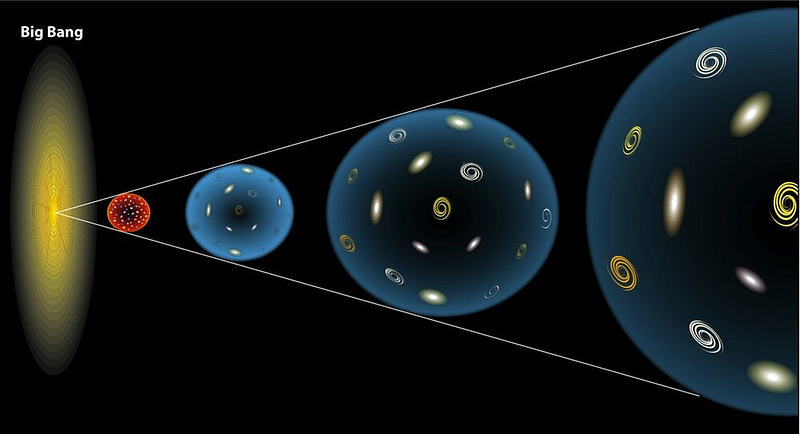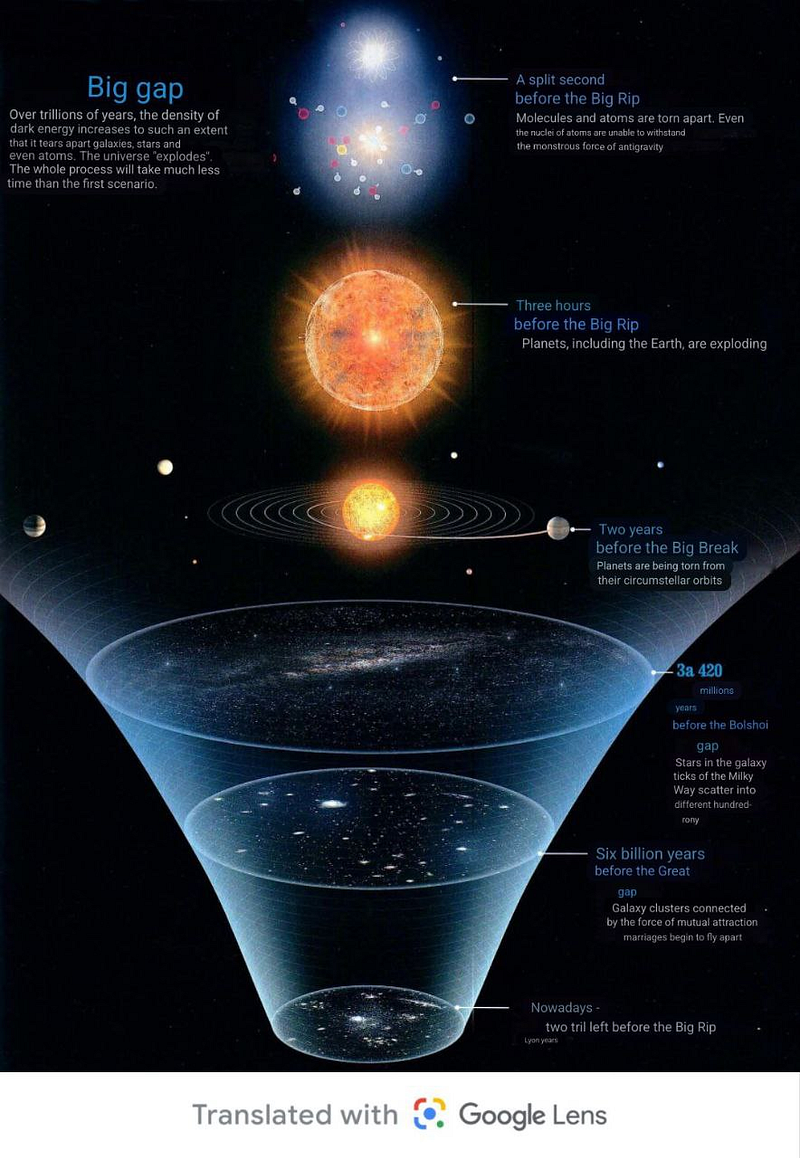Understanding Why We Don't Expand with the Universe's Growth
Written on
Chapter 1: The Universe and Its Expansion
A subscriber recently posed a thought-provoking question: If the universe is indeed expanding, does that imply we are all expanding alongside it? Or do we exist separately, with the universe growing independently of us? This inquiry is fascinating because it raises the issue of why the distance between the atoms in our bodies remains constant even as the universe stretches.
How Was the Universe's Expansion Established?
The notion of the universe expanding was first validated in 1922 when Vesto Slipher, an American astronomer, observed that nearly all visible galaxies—except for three—are receding from our Sun. Building on this observation, Arthur Eddington proposed that the universe's expansion is a fundamental characteristic, suggesting that the further an object is from us, the faster it moves away. This idea was later refined by Georges Lemaître in 1927 and Edwin Hubble in 1929, who developed the formula that governs this relationship.

Hubble's Law formula.
Since its introduction, this law has remained constant, although the values associated with the Hubble constant have undergone adjustments. Following the discovery of the universe's accelerated expansion, scientists realized that the Hubble constant is not truly constant; it appears to increase over time.
What Fuels the Universe's Expansion?
Many people assume that the Big Bang happened at a specific point in space, sending fragments—like galaxies—spreading out as if from an explosion. However, this interpretation is somewhat misleading.

In reality, the Big Bang signified the beginning of space itself, which continues to expand. At each moment, new space emerges at every point in the universe. Thus, for every object moving away from us, more space forms between us and that object. According to Hubble's Law, for an object located 3 million light-years away, roughly 70 kilometers of space is created every second.
Why Don't Nearby Objects Expand?
While the universe expands, gravitational forces also play a crucial role. The closer and more massive two objects are, the stronger their gravitational pull. In the contexts of solar systems, galaxies, and galaxy clusters, this gravitational attraction outweighs the universe's expansion. Consequently, the effects of expansion are effectively masked by gravity. In solids, liquids, and gases, intermolecular forces further counteract the universe's expansion at the particle level.
However, current cosmological models indicate that this balance may not persist indefinitely. As time progresses, the universe's expansion will accelerate, reaching a point where gravity can no longer counteract it. At that moment, ordinary objects will begin to noticeably expand, eventually leading to a scenario where everything in the universe is torn apart into elementary particles, scattered infinitely. This concept is referred to as the Big Rip.

Even in a hypothetical situation where no gravitational attraction existed, we would still struggle to perceive the expansion of nearby objects. As previously mentioned, greater distances yield more space forming every second. However, on the scale of everyday objects, this expansion is minuscule. For instance, two objects one meter apart would drift away from each other at a speed of 2.4 attometers per second, which would take around 10 billion years to increase their distance by just one meter. The effect would be even less noticeable at the scale of microscopic particles, remaining imperceptible throughout a human lifetime.
If you want to keep up with more articles about space, feel free to clap!
Subscribe to our channel and submit your queries for future articles. If you appreciate my work, consider supporting us by becoming a Medium member for just $5 a month, helping us create even more engaging content.
Chapter 2: Exploring the Universe's Expansion
The first video discusses the intriguing question: "If the Universe is expanding, where is the centre?" This video delves into the complexities of cosmic expansion and its implications.
The second video, "Q&A 133: What's Causing the Expansion of the Universe? And More..." addresses common inquiries about cosmic expansion and its underlying mechanisms.